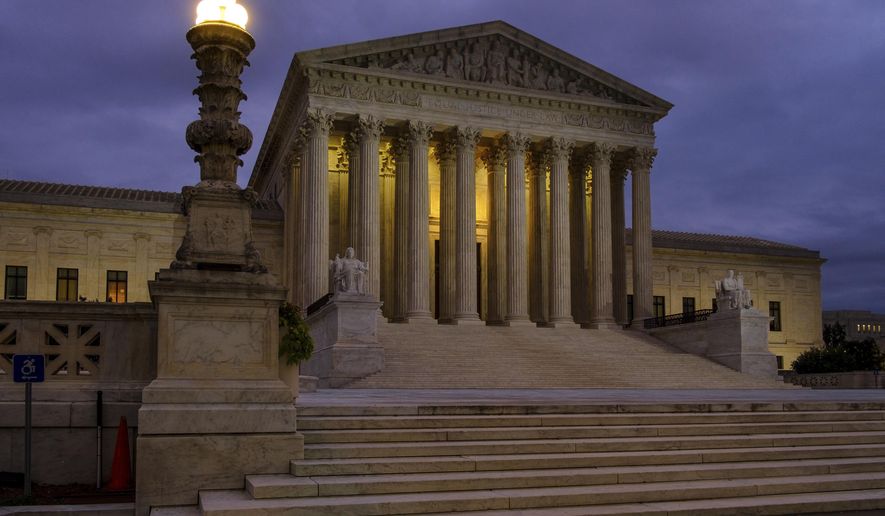The Supreme Court will hear arguments in March concerning two cases challenging the constitutionality of partisan gerrymandering.
The cases arise out of North Carolina and Maryland, where voters allege their politicians redrew their congressional district maps to favor one political party over the other.
The high court had heard a case out of Wisconsin the last term, which challenged partisan gerrymandering. But the justices sent it back to the lower court to decide whether the voters suffered adequate injury to bring the lawsuit, essentially punting on the issue.
“Whether it is Democrats or Republicans manipulating the election maps, gerrymanders cheat voters out of true representation,” said Karen Hobert Flynn, president of Common Cause, an organization that launched the complaints.
Advocacy groups are hoping the high court will set a clearer legal standard this time.
“Voters nationwide are ready for a ruling from the Supreme Court that finally declares that they come first, not self-interested politicians,” said Paul Smith, vice president at the Campaign Legal Center.
In Maryland, Republican voters accused the Democrat-led assembly of diluting Republican votes in one of the state’s congressional districts.
A lower court ruled the Maryland Democrats had violated the Constitution through their map drawing.
An appeal came to the high court last term and the justices said the lower court was correct in not issuing an injunction while the justices were considering the Wisconsin case.
The North Carolina case also had previously been pending appeal at the high court but was remanded back to the lower court after the justices decided the Wisconsin case.
The lower court found the voters had suffered adequate injury in order to bring the lawsuit and ruled in favor of the advocacy groups against the North Carolina Republican assembly.
• Alex Swoyer can be reached at aswoyer@washingtontimes.com.




Please read our comment policy before commenting.